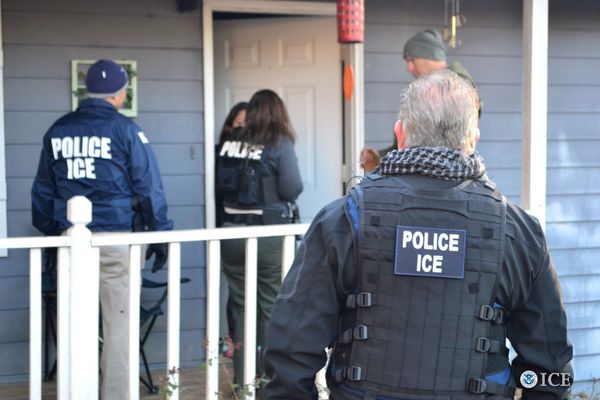At the time, as I entered the temporary exhibit at the National Civil Rights Museum at the Lorraine Motel, there was little idea how the moment, by turning to the room to the left, would so tie in with the reason I was in Memphis, Tenn.
Coverage of the NBA was the purpose of the trip, for the most meaningless of October exhibitions, on the second night of a back-to-back set, with all of the Miami Heat’s regulars to be held out.
Attempting to turn the early-morning flight from LaGuardia into something of substance, after, ironically, an exhibition the night before in Brooklyn where Kyrie Irving was in attendance, I decided to head to the South Main District, paid admission to the memorial on the site where Dr. Martin Luther King Jr. was assassinated in 1968 and took stock of an ongoing part of our culture that never can be left to history.
So, as I was guided to the left by the docent, my enlightenment over the next few hours began with an exhibit titled, “A Better Life for Their Children.”
The subject matter admittedly was unfamiliar.
But in light of Irving’s recent promotion of a film filled with dangerous, harmful, hateful, shameful antisemitic tropes (and then belated apology in the wake of a team suspension), it is a moment that has caused sobering reflection in recent days.
Per the Museum, the synopsis of that exhibit, which is scheduled to be in place through Jan. 2:
“In the early decades of the twentieth century, a visionary partnership between a Black educator and a white business leader launched transformational change across the segregated South. A new book of photographs and stories brings readers into the impactful, yet largely unknown, story of Rosenwald schools. A Better Life for Their Children: Julius Rosenwald, Booker T. Washington, and the 4,978 Schools that Changed America is the latest book from photographer and author Andrew Feiler. The late Congressman John Lewis, a Rosenwald school alum, contributed the book’s foreword.
“Born to Jewish immigrants, Julius Rosenwald rose to lead Sears, Roebuck & Company and turn it into the world’s largest retailer. Born into slavery, Booker T. Washington became the founding principal of the Tuskegee Institute.
“In 1912 the two men launched an ambitious program to partner with Black communities to build public schools for African American children. From 1912 to 1937, when few such schools existed, the program built 4,978 schools across fifteen southern and border states. Rosenwald schools — one of the earliest collaborations between Jews and African Americans — drove dramatic improvement in Black educational attainment and educated the generation who became leaders and foot soldiers of the civil rights movement.”
Yes, this typically is not the space for history, nor was it what was planned for this week’s NBA discourse.
But, please, allow for just a bit more from the exhibit’s synopsis.
“Julius Rosenwald created the Rosenwald Fund in 1917 to manage his growing school-building program. The fund moved to Fisk University in Nashville, Tennessee, in 1920. The new Rosenwald Fund employees at the Nashville office set new standards for schools. The grants now required matching funds from the communities that wanted schools. The local Black community and its white school district had to match the amount of the grant. Rosenwald asked for a match to encourage communities to work together in building the schools. Some community members contributed building materials and labor as their match. Black communities also held fish frys, bake sales, and other events to raise money. Rosenwald hoped his money would jumpstart a school and then not need his support.
“Of the original 4,978 schools, only about 500 survive. To tell this story visually, Feiler drove more than twenty-five thousand miles, photographed 105 schools, and interviewed dozens of former students, teachers, preservationists, and community leaders. Brief narratives written by Feiler accompany each photograph, telling the stories of Rosenwald schools’ connections to the Trail of Tears, Great Migration, Tuskegee Syphilis Study, embezzlement, and murder.”
This, not Irving’s bile, which he personally declined to repudiate for days, is what deserves study, reflection, the type of unified moment of those persecuted persevering in common concern.
Not the spewing. Not the promotion. Not the self importance and self indulgence of the talented All-Star who balked only when his livelihood was placed in peril.
And since this is a basketball space, tying it together from a Heat perspective is the awful antisemitic slur from former Heat center Meyers Leonard that went viral in March 2021 and the actions that followed.
Leonard did not know. He was ignorant. He was wrong. He was fined. He was suspended. He has not played an NBA game since.
But he also was contrite, immediately contrite, set out to make amends, immersed himself in Jewish communities, came out a better person. To emphasize ... immediately.
To speak the word that Leonard spoke when streaming his online video-game play was vile. To offer immediate heartfelt remorse through ensuing words and actions was human.
With the Nets having already made their lone regular-season visit to Memphis, “A Better Life for Their Children” won’t be on Brooklyn’s schedule.
If only Irving had promoted that exhibit across his vast social-media network.







